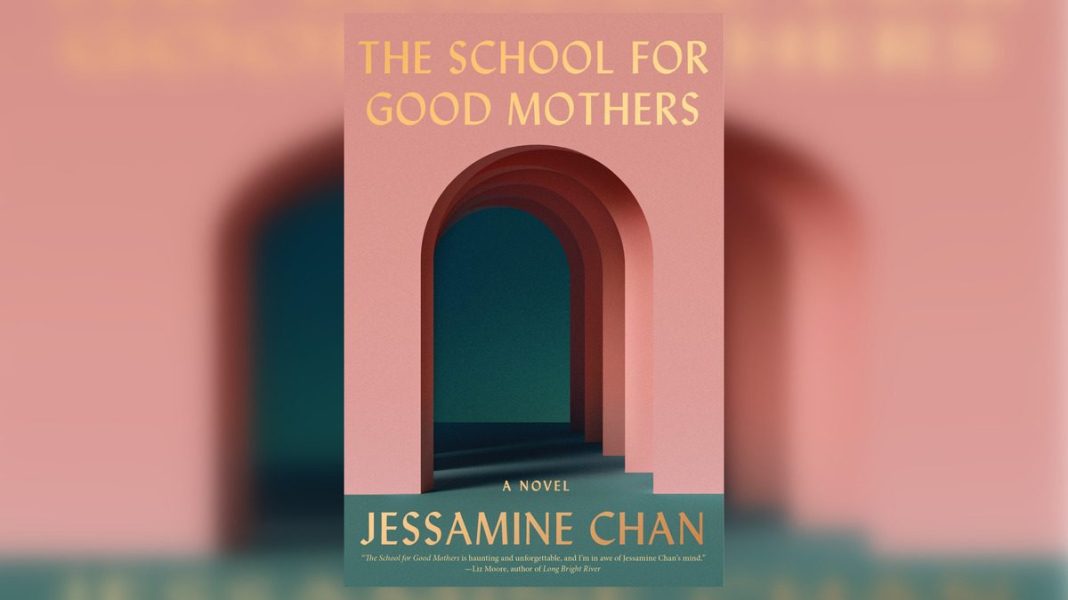High five if that title enraged you! What’s up with the world honing people into their purported ideal selves—students, entrepreneurs, parents? It’s all sold under a thick garb of perfection, a velvety finish we must give our personalities to raise the best children ever. Which parent can resist the need to outdo themselves in creating the happiest lives for their kids? The School for Good Mothers, conceptualized in the dystopian novel by Jessamine Chan, ensures that ignoring this would-be perfection is punishable by law.
When Frida, mom to two-year-old Harriet, leaves her toddler unattended at home one afternoon, her life begins disintegrating. It was a desperate, unhinged act committed in the sleep-deprived haze only single mothers of ill children understand. After a handful of routine investigations, Frida gets sent to the school, where she will remain separated from her child for a year.
Spoilers Ahead
The Ideal Mum
The book also touches upon a corrective institution for fathers, but it’s mostly lip service. All the talk about equal parenting responsibilities will take ages to translate into reality, and the onus of the job—and hence, the reprimand—falls on women.
She should talk, aiming to impart knowledge
It’s no good sitting silently next to each other in the sunshine anymore. Moms of young children must speak in Motherese, a high-pitched manner of talking rich with references to colors, shapes, and facts about the world. How else will the kids learn to be adept at facing life’s challenges? Being quiet when you are tired or using screens when you have slept for only two hours are excuses moms must guard against. Sidebar: What are introverted moms to do? Perhaps they need a personality change if they want to raise well-adjusted children.
She puts herself last
Me-time is overrated and a sign of a degenerating society, as far as mommyhood is concerned. Frida’s desperate need for a coffee uninterrupted by a squealing toddler or a fated minute on a phone during which a child slipped off a slide are cases in point. As soon as a baby exits your birth canal, you should content yourself with the grimy last coach on the train. You are never as significant as your child, full of potential to change the world. As one of the instructors, Ms. Russo, claims, moms are in such harmony with their children that all their needs get fulfilled.
She is a professional nutritionist and cook
During the social worker’s initial visit, Frida’s house was full of empty takeout containers, and her refrigerator was poorly stocked. How did she expect to feed her daughter a nutritious meal that all children need? Takeout, cereal for dinner, asking grandma to pitch in, etc., are signs of lazy parenting. A mother needs knife skills to quarter grapes, patience to feed vegetables to distracted babies (and clean up a million times), and kid-friendly recipes for wholesome family dinners.
She must tame tantrums within two minutes flat (or somewhere in that ballpark)
Toddlers losing it in the supermarket, preschool children screaming in the neighborhood at 10 p.m., and preteens whining about the shiniest new toy—guess who is to blame? A mother must learn to raise calm and compliant children. Frida should have been able to put Harriet down for the recommended number of daily naps. Moms can cure many illnesses with their magic touch and miraculous hugs.
She hides her feelings expertly
One of Frida’s daunting challenges at the school is the lack of phone time with her daughter. She cannot talk about what she’s going through or express concern over Susanna’s (her ex-husband Will’s new partner’s) parenting. Every transgression snatches at her privilege until she hardly gets to speak to Harriet. But her sorrow mustn’t translate into inattention during lessons. An overwhelmed mom can never perform inadequately at work or in the house or show her emotions to the child.
She must always take the blame
Alexander, the teenager whose mom, Helen, coddled him by cutting up his food, may grow up codependent. Lucretia let her humanoid child play in the sun for too long because she had a meltdown, causing her eventual death. Troubled children who must undergo therapy in adulthood always have incompetent parents. Popular cinema has convinced us as much, and the authorities in Chan’s novel also subscribe to the idea.
She does not prioritize love or sexuality
What business does a mother have kissing and making out with anyone? Giving birth is hard enough for the body, leaving many with long-term concerns like incontinence and vaginal pain. But even when romance and lovemaking are back on your mind again, surely cuddling with a child must take priority. Frida develops a companionable relationship with Tucker, one of the fathers from the other corrective school. Alice and Margaret become same-sex partners; Meryl, a teen mom, makes out with a security guard. It doesn’t bode well for any of them. There’s no space for longing, lust, or satisfying a base instinct in a mother’s life unless you mean a desire to breastfeed or save your child from a polar bear.
She must love all children
Maternal instinct should be immeasurable, all-encompassing, and extend to all children. Isn’t that right? The school sure believes so, expecting the errant moms to develop deep love and affection for the robot children (dolls) assigned to them for the lessons. Frida’s robot child, Emanuelle, is very different from Harriet, never mind not even human, and has a blue knob powering her. The school programs the robots per their needs, for instance, introducing extra grumpiness during holidays and insulting backtalk directed at parents. Meryl confesses she does not like her doll—oh, the horror! But mothers must love all children, no matter how ill-behaved, regardless of their mental state.
She is not allowed to make mistakes
Drug addiction, alcoholism, broken marriages, abusive partners, and poor mental health—are all real problems and threats to children. Mothers foolish and selfish enough to find themselves in such trouble should maintain a safe distance from their kids. There’s precious little that therapy or social support can do for moms who don’t have it in them to be selfless.
So, dear reader, did you make the cut? I lost my temper with my offspring earlier today, threatening, ‘I won’t take you to the park,’ and yelling and whining were in the picture. I am far from ideal as a mother or even a human being, for that matter, but I do what I can. How can society—and in this case, the government and the powers that be—expect us to be forgiving, gentle, educational, and nurturing all the time, especially when our cups are far from full? Isn’t it enough that most mothers strive to keep their children happy, healthy, and fed, even if some dinners are peanut butter and jelly sandwiches and some Sundays are about lazy afternoons in front of the television?
Frida made a grave mistake by leaving her toddler unattended at home. But it broke my heart into a million pieces to see her separated from her girl for good. In a more supportive world that understood her mental health struggles and stepped up for childcare, chances are she would have lived a fulfilling life with Harriet.
Parenting is far from ideal—the sleepless nights, the bum wiping, the tantrums over the wrong-colored spoon, the constant anxiety about your teenager’s wellbeing, the fretting about unhappy relationships or careers… Jessamine Chan’s protagonists have small children, but the struggles of parenthood are evident across ages. Being a mother can be rewarding but also draining and anxiety-inducing. This immensely thought-provoking novel pierces the reader’s heart, forcing them to face the injustice and judgment (ironic, much?) mothers face each day. If we cannot bring ourselves to be kinder to the Fridas, Helens, and Meryls of the world, I haven’t much to say about humankind.

